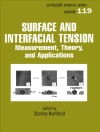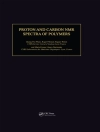Most organic molecules retain their integrity when dissolved, and even though in such cases the effects exerted by solvents are, in the language of the coordination chemist, of the "outer sphere" kind, the choice of solvent can be critical to the successful outcome of an operation or preparation. Solubilities of reactants and products must be taken into account, and even if the organic principals in the reactions retain their integrity, many of the reagents are electrolytes, and their state of aggregation will affect their reactivity. In testifying to the importance of understanding solute-solvent interactions I draw attention to a large class of inorganic species for which the involvement in the chemical and physical properties by the solvent is even more deeply seated. It is comprised by the large body of metal atoms in low oxidation states for which solvent molecules intervene as reagents. At the same time, because the ions carry charges, the effects arising from outer sphere interactions are usually greater than they are for neutral molecules. To cite an example: when Fe Cb(s) is dissolved in water to form a dilute – say O. Ol O- solution there is a complete reorganization of the coordination sphere of the cation. Whereas in the solid each cation is surrounded by six chloride ions, in the solution the dominant form is [Fe(H20)6]3+ followed by [Fe(H20)s CI]2+, [Fe(H20)4CI2]+, etc. in rapidly decreasing abundance.
Wolfgang Linert
Highlights in Solute-Solvent Interactions [PDF ebook]
Highlights in Solute-Solvent Interactions [PDF ebook]
Mua cuốn sách điện tử này và nhận thêm 1 cuốn MIỄN PHÍ!
Ngôn ngữ Anh ● định dạng PDF ● ISBN 9783709161517 ● Biên tập viên Wolfgang Linert ● Nhà xuất bản Springer Vienna ● Được phát hành 2012 ● Có thể tải xuống 3 lần ● Tiền tệ EUR ● TÔI 6355872 ● Sao chép bảo vệ Adobe DRM
Yêu cầu trình đọc ebook có khả năng DRM












